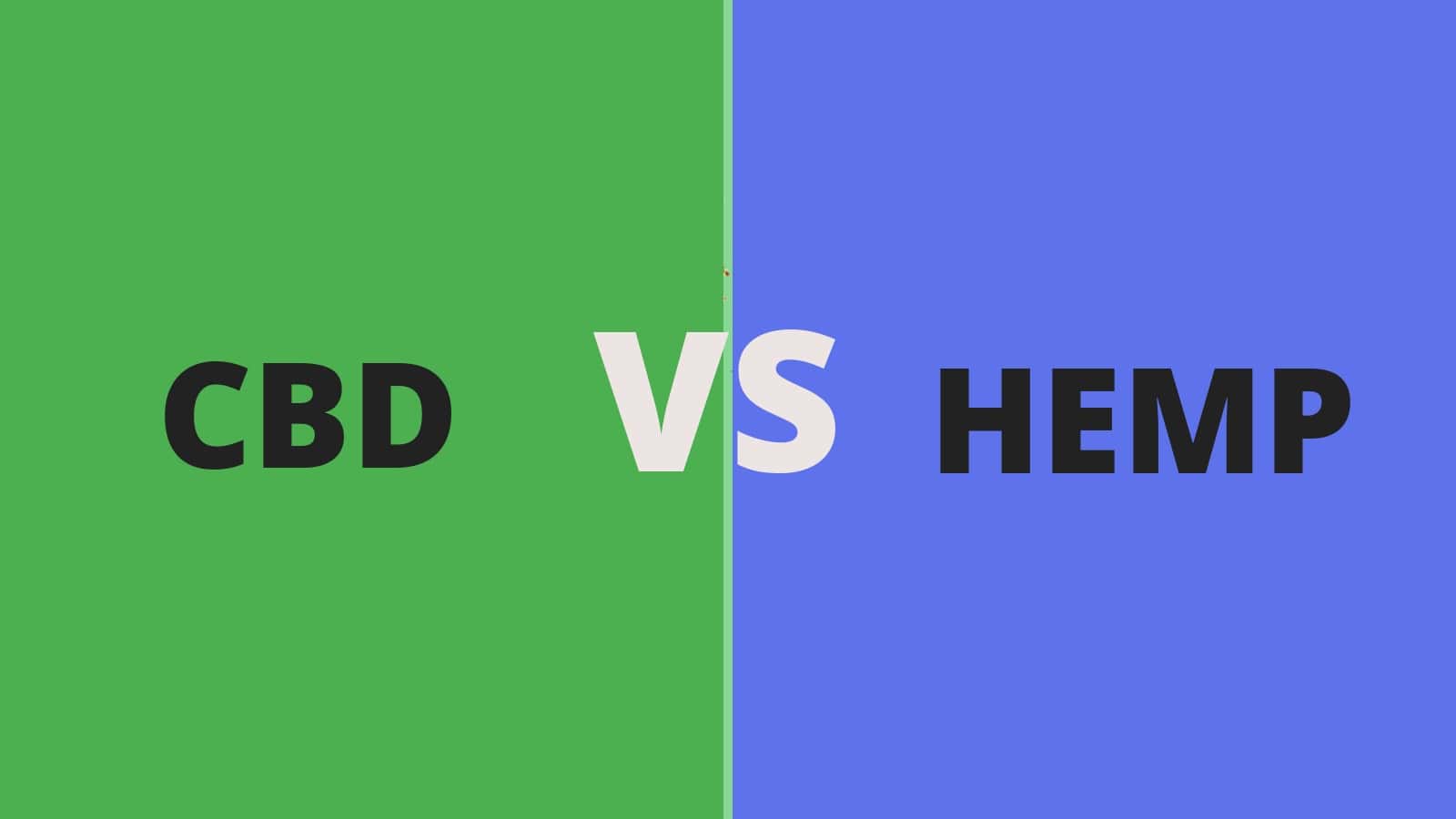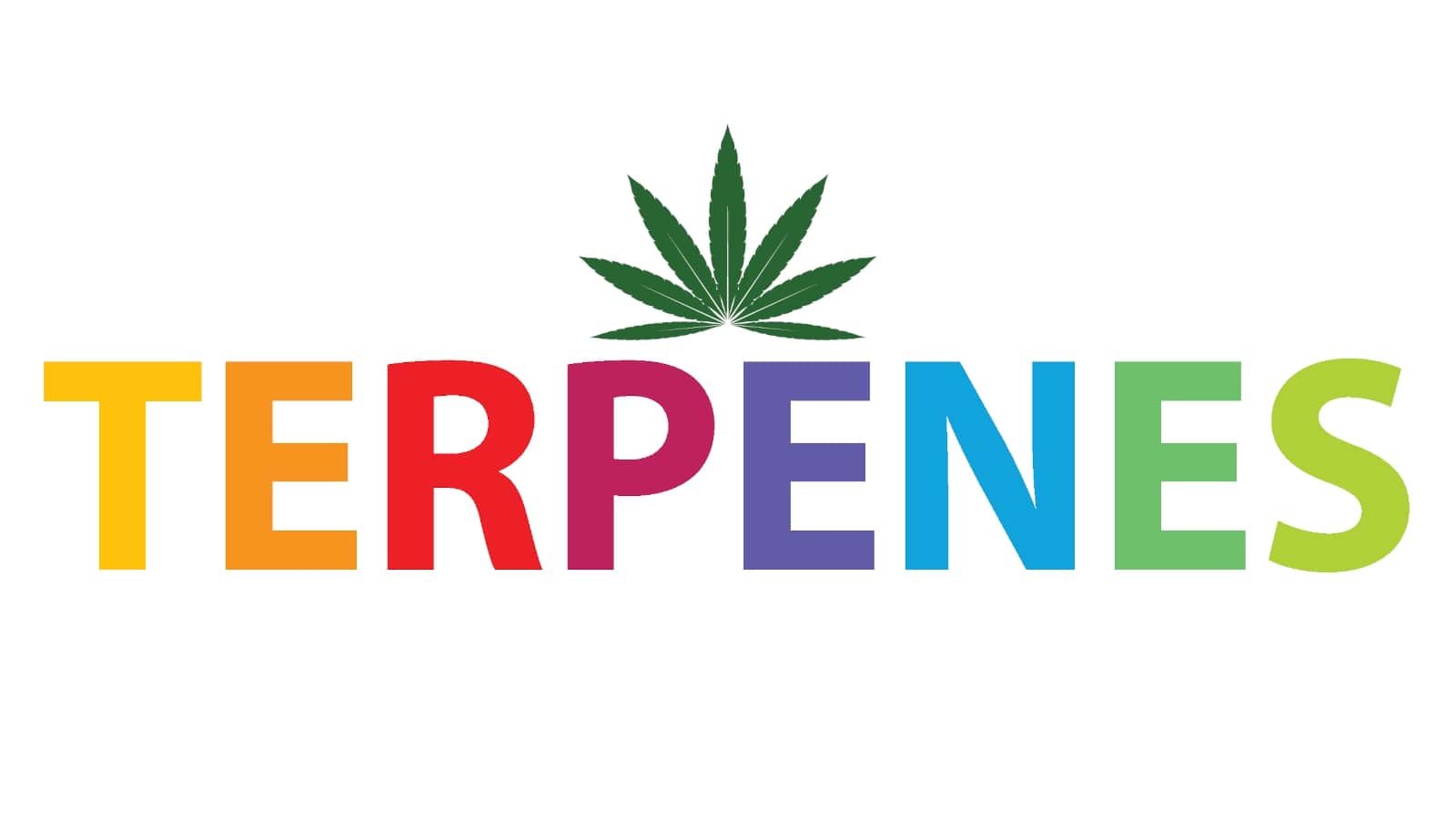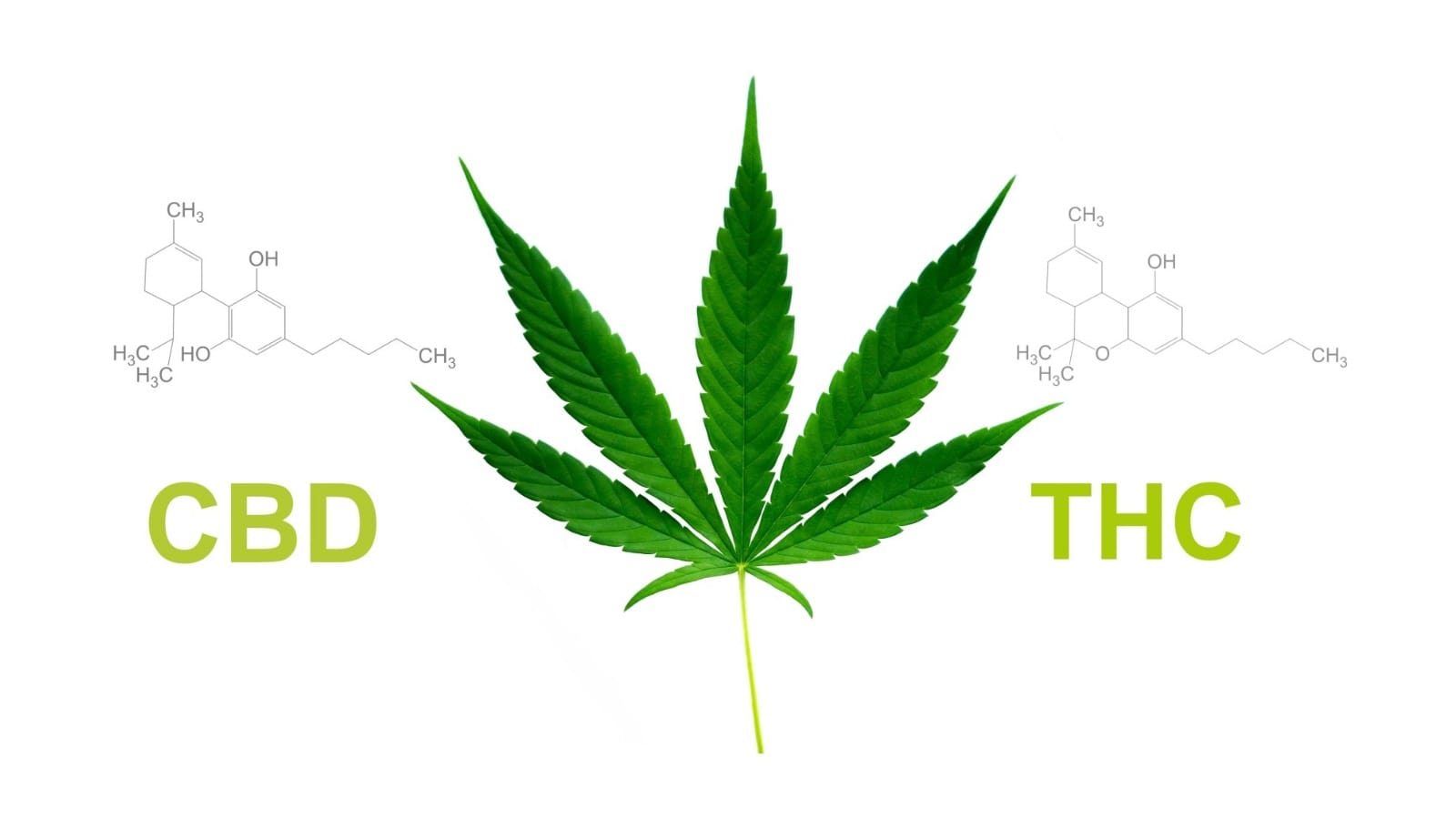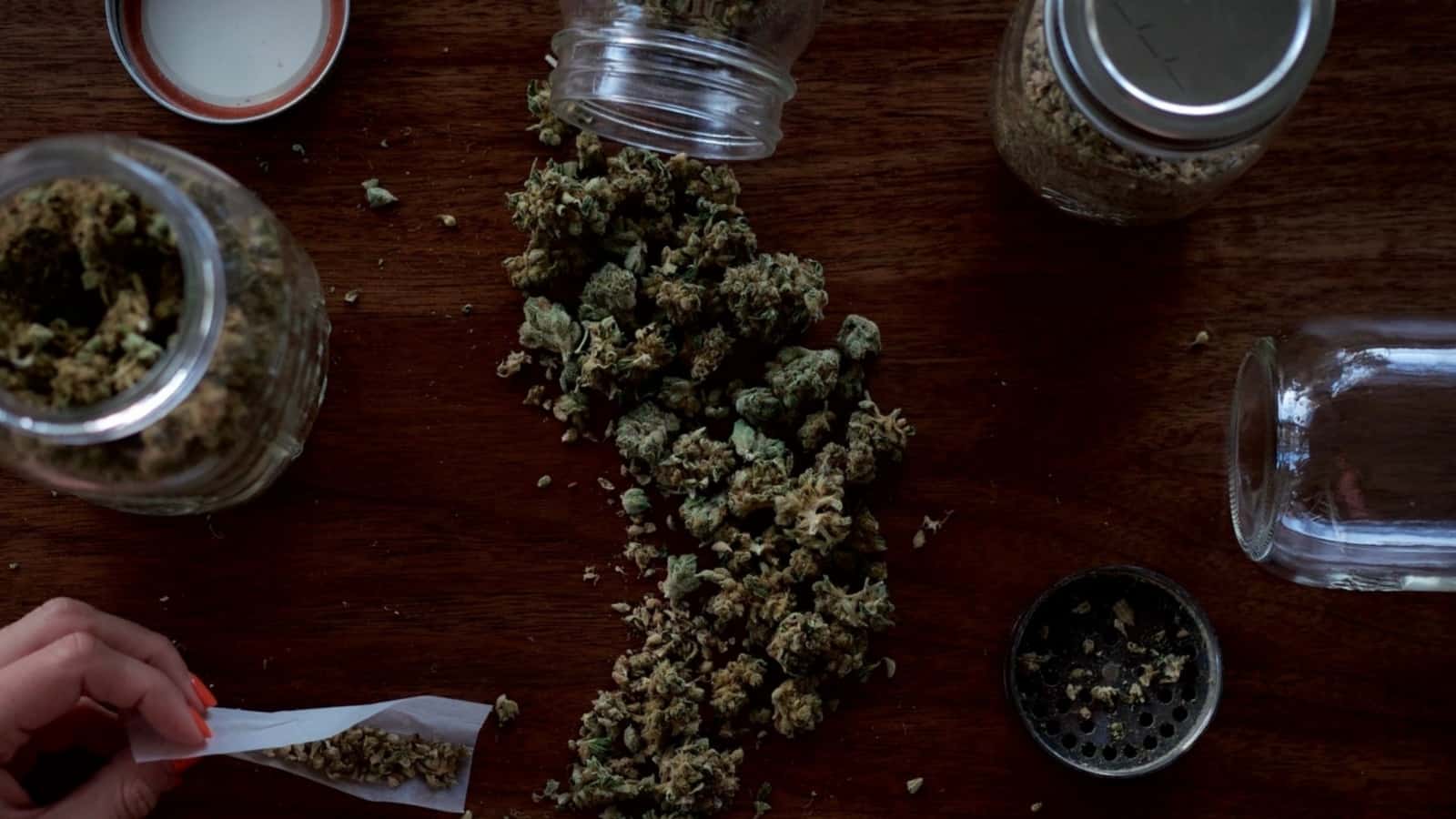
CBD Oil VS Hemp Oil: Are They The Same Product?
- Cannabis, Cannabinoids & Cannabidiol
- What is CBD Oil?
- What is Hemp Oil?
- The difference between CBD oil and Hemp Oil
- Does Hemp Oil Have Any Medical Benefits?
- Conclusion
There are many different hemp oil products available for people and animals (dogs and cats), but does it have the same effects as CBD oil?
Hemp seed oil and CBD oil are two different products.
Hemp seed oil is extracted from hemp seeds. It is also called hemp oil. On the other hand, CBD oil is produced from the stalk, leaves and flowers of the cannabis plant, the only parts in the cannabis plant that contain cannabidiol.
In this article we will discuss various aspects related to hemp seed oil and CBD oil as well as make a CBD oil vs hemp oil comparison.
Cannabis is hugely popular as a commonly available drug in the world. What makes it so popular is the ease with which it can be produced, procured, and used. But now the interest seems to be turning away from recreational use to medical and health-related applications.
Hemp seed oil and CBD oil as well as the assorted CBD products from biscuits, snack bars to health drinks have become a multi-billion dollar industry.
Because of the growing craze of CBD and hemp products, many genuine as well as profit-hungry enterprises have entered the sector to reap the benefits.
From the consumers’ point of view, it is necessary that adequate information is available about CBD and hemp oils as well as other CBD products so that they can make informed decisions about the choices they make when it comes to shopping for CBD and hemp products.
As part of this discussion, a CBD oil vs hemp oil comparison is also hugely imminent.
Table of Contents.
Cannabis, Cannabinoids & Cannabidiol
Researchers have found that cannabis contains over 120 components known as cannabinoids. Scientific research has yet not concluded what each of these cannabinoids do. But a fair amount of knowledge is available about two of the cannabinoids.
One is known as cannabidiol (CBD) while the other one is known as tetrahydrocannabinol (THC).
Experts believe that CBD has numerous health benefits and that’s why a large range of health products including CBD oil are made with CBD.
THC is the key psychoactive compound in cannabis and it is responsible for the intoxication and high that cannabis causes to its users.
What is CBD Oil?
CBD oil is made out of cannabidiol which is extracted from different parts of the hemp plant, particularly stalks, leaves, and flowers. These parts of the hemp plant contain a greater concentration of CBD.
CBD is a psychoactive cannabinoid but it does not cause intoxication or euphoria, which is very commonly associated with cannabis.
In short, CBD would impart some of the benefits of the hemp plant and at the same time its consumption would not cause intoxication or a high.
CBD oil is claimed to have many therapeutic properties. It is widely used to manage inflammation and pain. It is also used to treat nauseas, seizures, migraine, and anxiety.
CBD-based medicine Epidiolex has recently been reviewed by the Epilesy Organisation and received FDA approval as a prescription medication to treat some varieties of epilepsy.
Generally, there are three types of CBD oil in the market:
- Full-spectrum: It contains most of the compounds found in the cannabis plant, even THC but in very little amount.
- Broad-spectrum: It contains many of the compounds of the cannabis plant, but not THC.
- CBD isolate: CBD oil made from CBD isolate contains only CBD.
While shopping for CBD oil, due care should be taken to verify the purity of the oil. Typically, the product would come with a Certificate of Analysis (COA) label, which is given by a third party after testing the CBD oil and other products.
CBD oil is found to be useful in many health conditions including the following:
- Epilepsy
- Pain & inflammation
- Addiction management
- Anxiety & depression
- Neurodegenerative conditions
- Inflammatory skin conditions
However, apart from antiepileptic effects, scientific research has still not confirmed the other health benefits of CBD.
The full-spectrum CBD oils contain some amounts of THC having psychoactive effects. Due to this, some users may use it for recreational purposes. THC, too, has some therapeutic values as it tends to prevent nausea and vomiting.
What is Hemp Oil?
Hemp oil is actually hemp seed oil. It is made from the seeds of the Cannabis plant.
Interestingly, the seeds have a number of rich nutrients that can act as a health supplement as well as have some health benefits. But these seeds do not have CBD.
Instead, they have useful bioactive compounds, various nutrients, and fatty acids. As a health supplement, hemp seed oil is highly effective because of a high content of omega-3 and omega-6 fatty acids as well as other useful antioxidants and gamma-linolenic acid.
Hemp seed oil is used in many nutritional products, for example, breads, cookies, snack bars, and yogurt. Hemp seed oil makes these products rich in essential amino acids and unsaturated fatty acids.
The difference between CBD oil and Hemp Oil
Many people think that Hemp oil and CBD oil are two different names of the same product. This is not right.
Hemp seed oil and CBD oil are two different kinds of oils extracted from different parts of the hemp plant, hemp seed oil from the hemp seed, and CBD oil from its stalk, leaves, and flowers.
Though both CBD oil and Hemp oil come from the same Hemp plant, they are extracted from different parts of the plant and surprisingly none have the THC which causes intoxication and ‘high’ among its users.
The nutrient profile and the medicinal properties of these two hemp-based oils are very different from each other.
A good knowledge of each of the two oils - CBD oil and Hemp oil - can be very useful for both medical professionals as well as consumers as they would know what benefits to expect from these two hemp-based oils.
Both CBD oil and hemp seed oil contain a wide range of bioactive and psychoactive chemicals that are claimed to have health benefits. The hemp seed oil contains omega-3 and omega-6 fatty acids, a variety of nutritional antioxidants and gamma-linolenic acid.
It is also high in vitamin D and B vitamins. Using hemp seed oil will not cause any intoxication or high as it does not have any THC or even CBD.
Does Hemp Oil Have Any Medical Benefits?
With all the craze around CBD oil, a lot of people lose interest in Hemp oil as its extracted from seeds. But there are a lot of proven health benefits that is making Hemp food products so popular in Australia.
Health Benefits of Hemp Oil
More than therapeutic benefits, hemp oil is used for its health benefits and nutritional power that comes from mineral content and healthy fats in it. Studies suggest that hemp oil can be effective in treating some skin conditions because of its balanced content of healthy acids.
Nutrition
Hemp oil has great nutritional value as it contains essential fatty acids such as alpha-linolenic acid and linoleic acid or omega-3 and omega-6 respectively. These seeds also contain proteins and vitamin E and other healthy minerals like iron, sodium, magnesium, phosphorus, potassium, sulfur, calcium, and zinc.
Skin Disorders
Various studies indicate that using hemp oil in certain skin disorders including eczema improve the symptoms of the disease. It alleviates itching and dryness. Researchers believe that hemp oil’s positive effects on the skin are due to the balanced presence of omega-3 and omega-6 acids.
PMS & Menopause
Hemp is rich in gamma linoleic acid (GLA) and it is found to be useful in controlling the inflammation due to menopause. It is also found to be useful in reducing the symptoms of PMS.
Many people believe that hemp seed oil is good for cardiovascular health. It seems to improve the following:
- Total cholesterol
- Triglycerides
- Lipoprotein cholesterol (low-density)
- Lipoprotein cholesterol (high-density)
However, scientific evidence to support these claims is yet to come in the public domain.
However, hemp seed oil seems to have therapeutic properties in several health conditions. For example, it seems to
- Relieve constipation
- Improves cardiovascular health
- Modifies immune system
- Improves skin conditions
- Improves gastrointestinal conditions
- Anticancer effects
- Anti-aging effects
- Antioxidant effects
Conclusion
Ever since the FDA gave approval to a CBD-based medicine, Epidiolex, for the treatment of some types of epilepsy in 2018, the interest in the medicinal and health-related use of CBD and Hemp oils have increased tremendously.
Though there has always been some degree of belief among its users that the hemp plant has medicinal value. But now people are more curious and forthcoming in trying CBD and Hemp seed oils and products and medicines based on them.
Hemp seed oil does not have any THC so it cannot be used for recreational purposes. CBD oil may or may not have THC, but if it is available in a particular batch of CBD oil it will be in negligible amounts, giving just a whiff of what a high or psychoactive compound can be.
The discussions so far indicate that there are many benefits of CBD and hemp oils. Though scientific studies have yet not proved everything that is said about these oils and hemp products, cannabis has been in use since ages and a lot of people have always believed that this is a miracle plant that has helped humanity through the ages.
In modern times, it is a big business, especially CBD and hemp oils. There are a large number of manufacturers who are making all kinds of CBD products while specialized labs have sprung up in different parts of the world offering all kinds of research and development services as well as testing and certification services to individuals and entrepreneurs.
However, there are some fake people also in the business who try to push substandard products to make big profits. As a consumer you should be wary of them.

James King
James is an experienced writer and legal cannabis advocate in Australia. He answers all the questions about business, legalisation and medicinal cannabis.
Disclaimer: Cannabis Place are not doctors and we recommend consulting health professionals for accurate information. This site may contain information regarding drugs. This content is designed for an 18+ audience. Click here for our full disclaimer





